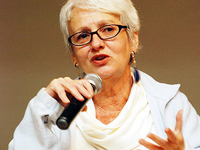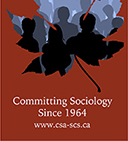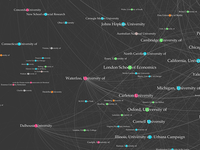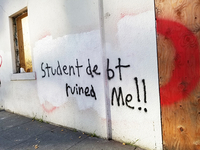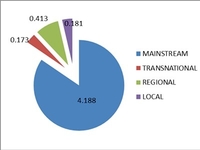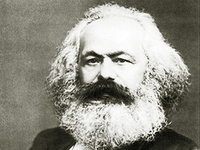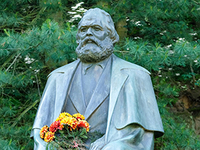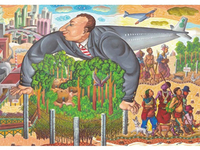GD 8.1 - April 2018
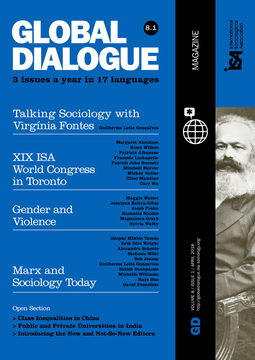
Global Dialogue is available in multiple languages!
Select the language to download the issue.
Editors:
Brigitte Aulenbacher, Klaus Dörre.
Assistant Editors:
Johanna Grubner, Christine Schickert.
Associate Editor:
Aparna Sundar.
Managing Editors:
Lola Busuttil, August Bagà.
Consultants:
Michael Burawoy.
Media Consultant:
Gustavo Taniguti.
Consulting Editors:
Margaret Abraham, Markus Schulz, Sari Hanafi , Vineeta Sinha, Benjamín Tejerina, Rosemary Barbaret, Izabela Barlinska, Dilek Cindoğlu, Filomin Gutierrez, John Holmwood, Guillermina Jasso, Kalpana Kannabiran, Marina Kurkchiyan, Simon Mapadimeng, Abdul-mumin Sa’ad, Ayse Saktanber, Celi Scalon, Sawako Shirahase, Grazyna Skapska, Evangelia Tastsoglou, Chin-Chun Yi, Elena Zdravomyslova.
REGIONAL EDITORS
Arab World: Sari Hanafi , Mounir Saidani.
Argentina: Juan Ignacio Piovani, Pilar Pi Puig, Martín Urtasun.
Bangladesh: Habibul Haque Khondker, Hasan Mahmud, Juwel Rana, US Rokeya Akhter, Toufi ca Sultana, Asif Bin Ali, Khairun Nahar, Kazi Fadia Esha, Helal Uddin, Muhaimin Chowdhury.
Brazil: Gustavo Taniguti, Andreza Galli, Lucas Amaral Oliveira, Benno Warken, Angelo Martins Junior, Dmitri Cerboncini Fernandes.
France/Spain: Lola Busuttil.
India: Rashmi Jain, Jyoti Sidana, Pragya Sharma, Nidhi Bansal, Pankaj Bhatnagar.
Indonesia: Kamanto Sunarto, Hari Nugroho, Lucia Ratih Kusumadewi, Fina Itriyati, Indera Ratna Irawati Pattinasarany, Benedictus Hari Juliawan, Mohamad Shohibuddin, Dominggus Elcid Li, Antonius Ario Seto Hardjana.
Iran: Reyhaneh Javadi, Niayesh Dolati, Sina Bastani, Mitra Daneshvar, Vahid Lenjanzade.
Japan: Satomi Yamamoto, Masaki Yokota, Yuko Masui, Kota Nakano, Riho Tanaka, Masaki Tokumaru, Marie Yamamoto.
Kazakhstan: Aigul Zabirova, Bayan Smagambet, Adil Rodionov, Almash Tlespayeva, Kuanysh Tel.
Poland: Jakub Barszczewski, Iwona Bojadżijewa, Katarzyna Dębska, Paulina Domagalska, Łukasz Dulniak, Krzysztof Gubański, Sara Herczyńska, Justyna Kościńska, Karolina Mikołajewska-Zając, Adam Müller, Zofi a Penza-Gabler, Aleksandra Senn, Anna Wandzel, Jacek Zych.
Romania: Cosima Rughiniș, Raisa-Gabriela Zamfi rescu, Maria-Loredana Arsene, Timea Barabaș, Denisa Dan, Diana Alexandra Dumitrescu, Radu Dumitrescu, Iulian Gabor, Alina Hoară, Alecsandra Irimie-Ana, Cristiana Lotrea, Anda-Olivia Marin, Bianca Mihăilă, Rareș-Mihai Mușat, Oana-Elena Negrea, Mioara Paraschiv, Codruţ Pînzaru, Adriana Sohodoleanu, Elena Tudor.
Russia: Anastasia Daur, Andrei Sinelnikov, Elena Zdravomyslova.
Taiwan: Jing-Mao Ho.
Turkey: Gül Çorbacıoğlu, Irmak Evren.
GD 8.1 - April 2018
Editorial
“If the standpoint of economics is the market and its expansion, and the standpoint of political science is the state and the guarantee of political stability, then the standpoint of sociology is civil society and the defense of the social. In times of market tyranny and state despotism, sociology – and in particular its public face – defends the interests of humanity.”
Michael Burawoy, 2004, ASA presidential address
“There are […] three challenges for global sociology. If the first challenge is to compose a sociology of society, and the second is to build a sociology in society, the third challenge is to construct a sociology for society, defending the very object – civil society – that was sociology’s original foundation.”
Michael Burawoy, 2014, ISA presidential address
By starting our first issue of Global Dialogue with two quotes from Michael Burawoy, we as its new editors are recognizing the rich history of this unique magazine of public and global sociology (see his editorial in GD 7.4).
The first quote is from Michael’s programmatic speech as President of the ASA in which he makes a compelling case for strengthening public sociology. In the second quote, which is taken from his presidential address at the XVIII ISA World Congress of Sociology, he develops the contours of a global sociology. “Going public – going global” is how Michael encapsulates the ten years between these two speeches. It was a decade in which his understanding of sociology and the question of what sociology as a discipline can and should accomplish were hotly debated internationally. Furthermore, it was a decade in which Michael – teaching and doing research in the United States and despite that (or therefore), viewing hegemonic sociologies critically – founded Global Dialogue. Within only seven years he – together with sociologists from all over the world – developed it into a flourishing magazine of public sociology. You don’t have to share Michael’s idea of sociology to acknowledge that he has managed to give it a voice beyond the discussions within the field, and to give sociologists from all over the world a forum for their research findings, statements concerning world affairs, and reflections on their shared discipline.
When Michael asked us if we would apply to succeed him as editors of Global Dialogue, we felt honored and pleased that he trusted us for this task. Anticipating the challenges that come with a project like this, we did not make this decision lightly. What convinced us as public sociologists who feel connected to the critical traditions of the discipline is the gruesome reality described in Michael’s speech about the “times of market tyranny and state despotism” and threatening to gain momentum in new ways.
Our societies have undergone processes of profound and far-reaching social transformation since the mid-1970s. These processes can be identified by distinct caesuras in both the global North and global South as well as in the East and West. They include the New Depression of the 1970s, the collapse of state socialism, finance-capitalist expansion and globalization, the rise of the BRICS countries, and the global financial crisis of 2008-09. Further critical historical breaks include the ongoing dismantling, restructuring, and reconfiguration of welfare states across different parts of the world since the 1980s; new protest movements; economically, politically, and religiously motivated wars over resources and hegemony; forced migration on an unprecedented scale; material impoverishment and social crisis across entire regions and countries as a result of ecological disasters; and a dramatic increase in social inequality. We are also witnessing the “conformist rebellion” (in Adorno’s terms) of a new right-wing populism, and a tendency towards authoritarian forms of state rule that necessarily collide with equally relevant democratization movements emerging in society.
These phenomena represent uneven developments caused by highly complex sets of economic, political, social, and cultural factors with – more importantly – dramatically varied consequences. At the same time, however, we observe inter- and transnational interrelations and converging tendencies, such as the market-centered reorganization of otherwise distinct capitalisms; simultaneously emerging populist currents in the United States, Europe, Asia, and Latin America; the renewed growth of class-specific inequalities in almost all OECD countries; and the forceful return of the axes of inequality related to gender and ethnicity/nationality.
Although sociological interpretations of these phenomena are deeply heterogeneous and even contradictory, there is a general agreement that these changes affect the very core of the discipline. In a post-truth world, a sociology devoted primarily to finding “the truth” forfeits its social relevance entirely. As a discipline that relies on a discourse free of domination in order to fulfill its obligations in terms of analyzing, reflecting upon, and criticizing social developments, it would be doomed. Therefore, all differences aside, sociologists must develop a shared interest in helping to force the dialogue between academic and non-academic publics through their contributions to and engagement in the common discussion. As new editors of Global Dialogue we aim to bring together sociological insights from around the world and to encourage a vivid discussion about societal developments as well as the advancement of our discipline.
The current issue opens with an interview with one of the most prominent theoreticians on dependency theory and Marxist thinkers in Latin America, Virgínia Fontes. She invites us to reflect on the history of these strands of theoretical research in Brazil, and on the relevance of the Marxist concept of expropriation for the critique of political economy and the understanding of developments since the parliamentary coup of 2016.
More than 5,000 sociologists are expected at the XIX ISA World Congress of Sociology in Toronto, Canada to discuss their findings and the tasks of sociology in the face of the pressing issues of our time. ISA President Margaret Abraham explains why the Congress’s theme of “Power, Violence and Justice: Reflections, Responses and Responsibilities” is so important. Patrizia Albanese, chair of the Local Organizing Committee, and Rima Wilkes, President of the Canadian Sociological Association, as well as young scholars from all over Canada give us some insights into Canada and Canadian sociology.
Violence and gender is often a taboo topic. Repeated efforts to bring it to public attention have been made and the extent of the problem causes outrage. Invited by Margaret Abraham authors from Poland, Great Britain, Australia, and South Africa write about developments in these countries.
Karl Marx’s 200th birthday provides an opportunity to reflect upon how his theories and ideas have been discussed in sociology. A number of scholars have been invited by us to contribute to a symposium which combines in-depth analysis of the history of sociology with insights into the international discussion of Marx’s theory and critiques of his oeuvre from different perspectives. Their instructive articles show how Marx can be a reference for the theory of society and for the discussion about alternative visions of societal development, or how he has been criticized from a feminist perspective, how his theory is used for analyzing contemporary capitalisms in general, and how the development of the state or the law can be understood from a Marxian perspective, and so much more. We learn about his international recognition following authors from different countries.
In the Open Section an article discusses the impact of marketization on the sociology curriculum in Indian universities. And we publish a piece about working conditions in China. Furthermore, the members of Global Dialogue’s new editorial team who have taken up and/or are continuing their work with us introduce themselves.
Michael Burawoy’s generous support, along with the warm welcome of the magazine’s global team and all the bodies of the ISA involved in Global Dialogue have made this new beginning easy. We would like to thank all of them, and with great confidence we look forward to our joint work on Global Dialogue and to new ideas and suggestions from around the world.
Brigitte Aulenbacher and Klaus Dörre, incoming editors of Global Dialogue.
Global Dialogue can be found in multiple languages.
Submissions should be sent to globaldialogue@isa-sociology.org.

